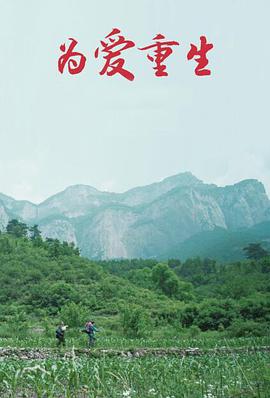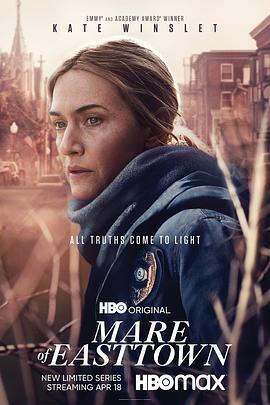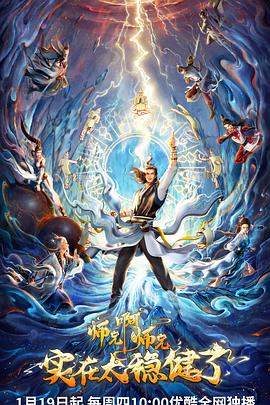- 正在播放《欧洲的某个地方》HD中字 - 在线播放
- 提醒不要轻易相信视频中的任何广告,谨防上当受骗
- 技巧如遇视频无法播放或加载速度慢,可尝试切换播放节点或者切换解析
- 收藏五星影院网址:www.wxpw.cc / www.wxpw.cc ,记得收藏哟~
剧情:
Somewhere in the remote region, the war ends. In the midst of ruined cities and houses in the streets, in rural hamlets, everywhere where people still live, are children who have lost their homes and parents. Abandoned, hungry, and in rags, defenseless and humiliated, they wander through the world. Hunger drives them. Little streams of orphans merge into a river which rushes forward and submerges everything in its path. The children do not know any feeling; they know only the world of their enemies. They fight, steal, struggle for a mouthful of food, and violence is merely a means to get it. A gang led by Cahoun finds a refuge in an abandoned castle and encounters an old composer who has voluntarily retired into solitude from a world of hatred, treason, and crime. How can they find a common ground, how can they become mutual friends? The castle becomes their hiding place but possibly it will also be their first home which they may organize and must defend. But even for this, the price will be very high. To this simple story, the journalist, writer, poet, scriptwriter, movie director, and film theoretician Béla Balázs applied many years of experience. He and the director Géza Radványi created a work which opened a new postwar chapter in Hungarian film. Surprisingly, this film has not lost any of its impact over the years, especially on a profound philosophical level. That is to say, it is not merely a movie about war; it is not important in what location and in what period of time it takes place. It is a story outside of time about the joyless fate of children who pay dearly for the cruel war games of adults. At the time it was premiered, the movie was enthusiastically received by the critics. The main roles were taken by streetwise boys of a children's group who created their roles improvisationally in close contact with a few professional actors, and in the children's acting their own fresh experience of war's turmoil appears to be reflected. At the same time, their performance fits admirably into the mosaic of a very complex movie language. Balázs's influence revealed itself, above all, in the introductory sequences: an air raid on an amusement park, seen in a montage of dramatic situations evoking the last spasms of war, where, undoubtedly, we discern the influence of classical Soviet cinematography. Shooting, the boy's escape, the locomotive's wheels, the shadows of soldiers with submachine guns, the sound of a whistle—the images are linked together in abrupt sequences in which varying shots and expressive sharp sounds are emphasized. A perfectly planned screenplay avoided all elements of sentimentality, time-worn stereotypes of wronged children, romanticism and cheap simplification. The authors succeeded in bridging the perilous dramatic abyss of the metamorphosis of a children's community. Their telling of the story (the scene of pillaging, the assault on the castle, etc) independently introduced some neorealist elements which, at that time, were being propagated in Italy by De Sica, Rossellini, and other film artists. The rebukes of contemporary critics, who called attention to "formalism for its own sake" have been forgotten. The masterly art of cameraman Barnabás Hegyi gives vitality to the poetic images. His angle shots of the children, his composition of scenes in the castle interior, are a living document of the times, and underline the atmosphere and the characters of the protagonists. The success of the picture was also enhanced by the musical art of composer Dénes Buday who, in tense situations, inserted the theme of the Marseilaise into the movie's structure, as a motive of community unification, as an expression of friendship and the possibility of understanding. Valahol Europaban is the first significant postwar Hungarian film. It originated in a relaxed atmosphere, replete with joy and euphoria, and it includes these elements in order to demonstrate the strength of humanism, tolerance, and friendship. It represents a general condemnation of war anywhere in the world, in any form.
收起
在线观看
播放节点列表
在线播放1
高清播放1
【DVD】
官网同步更新,若有延迟请稍作休息再看看
官网同步更新,若有延迟请稍作休息再看看
相关影片
2023
剧情片
法国
基姆·海格林 让-保罗·卢弗 莱蒂西娅·卡斯塔 埃洛迪·布歇 吉恩·舍瓦里埃 洛丽塔·夏马 David Clavel Agathe Dronne Christophe Grégoire Doby Broda Benjamin Gomez Irène Ismaïloff 安娜·卢瓦雷 利拉-萝丝·吉尔贝蒂 谭古伊·莫西尔 Selma Tamiatto Lou-Ann Trabaud Héloïse Bresc Eloi Léger Ferdinand Redouloux
改编自瓦内莎·斯普林格拉的同名图书,讲述了自己14岁时被年长她30多岁的法国作家G引诱、控制,并发展出一段畸形关系的经历。解释了自己是如何成为性、文学和心理三重掠夺的受害者…
HD
1982
剧情片
香港
HD
1982
剧情片
香港
HD
2019
剧情片
香港
HD
2019
剧情片
香港
HD
2006
剧情片
香港
HD
2006
剧情片
香港
HD
2024
剧情片
其它
幽深的矿井下,越和南的爱在黑暗中默默滋长。煤尘染黑了他们的脸庞,也蒙蔽了未来的方向。南渴望逃离这窒息的生活,将偷渡欧洲视为唯一的出路。然而,母亲梦境中父亲的呼唤,将他们引向旧日战场,踏上寻觅南父亲
HD
1986
剧情片
香港
HD
1986
剧情片
香港
HD
2019
剧情片
香港
HD
2019
剧情片
香港
HD
1984
剧情片
大陆
HD
2019
剧情片
大陆
HD
2024
剧情片
大陆
HD
2021
剧情片
美国
凯特·温丝莱特 埃文·彼得斯 朱丽安妮·尼科尔森 珍·斯马特 安格瑞·赖斯 盖·皮尔斯 杰克·马赫恩 索茜·贝肯 麦肯齐·兰辛 卡莉·史派妮 约翰·道格拉斯·汤普森 卡梅隆·曼 乔·蒂皮特 伊兹·金 贾斯汀·赫特·邓克利 大卫·丹曼 尼尔·哈夫 詹姆斯·麦卡德尔 露比·克鲁兹 科迪·科斯特罗 伊内徳·格兰汉姆 帕特里克·麦克戴德 德鲁·谢伊德 马德琳·温斯坦 帕特里夏A.默克 黛比·坎贝尔 内德·艾森伯格 黛博拉赫德瓦尔 萨沙·弗若洛娃 菲利斯·萨莫维尔 伊萨·戴维斯 布莱恩·加拉格尔 柴纳萨·奥格布阿古
故事发生在一座名为“东城”的小城之中,梅尔(凯特·温丝莱特 Kate Winslet 饰)是在那里生活和工作的一名警探,每一天,梅尔都要处理镇子上发生的各种各样的琐事,这些事情堆积到一起,难免令她
已完结
正在热播
更多
2023
国产动漫
大陆
独家推荐
已完结
2015
爱情片
大陆
独家推荐
HD
2023
战争片
大陆
推荐
HD
2018
伦理片
日本
推荐
HD
2023
国产剧
大陆
推荐
已完结
2018
伦理片
日本
推荐
HD
2023
战争片
大陆
独家推荐
HD
2023
恐怖片
大陆
独家推荐
HD
2023
喜剧片
大陆
推荐
HD
2023
剧情片
大陆
独家推荐
HD
2023
国产剧
大陆
独家推荐
更新至第31集
2023
喜剧片
大陆
独家推荐
HD
2023
动作片
大陆
独家推荐
已完结
































